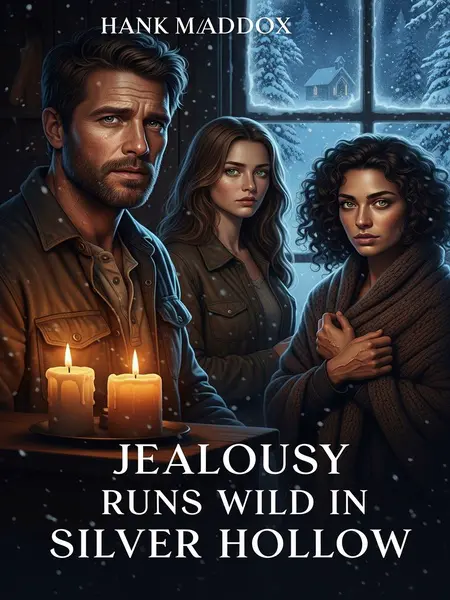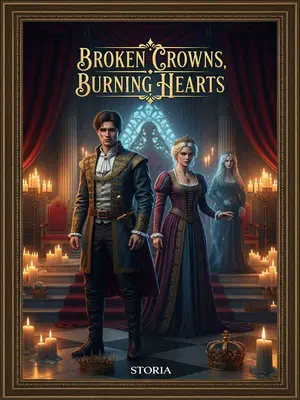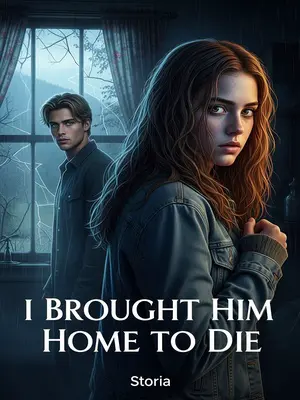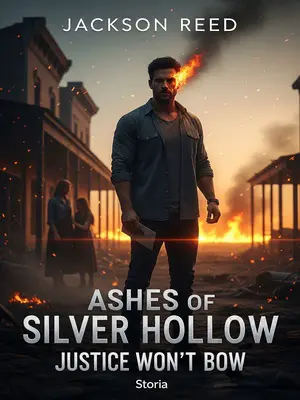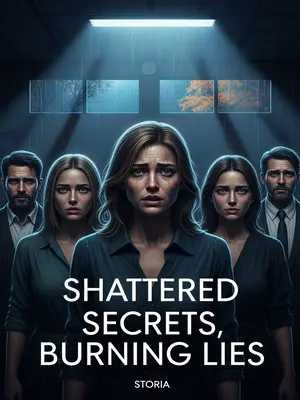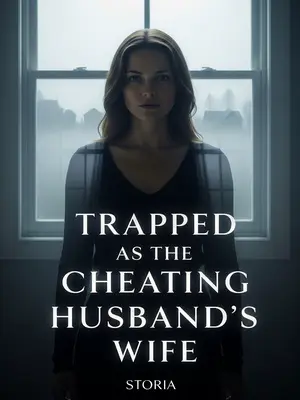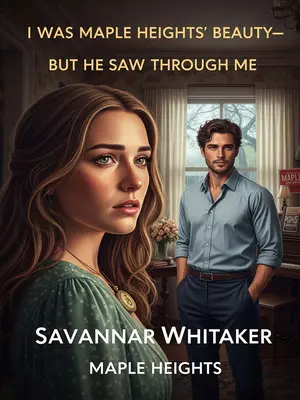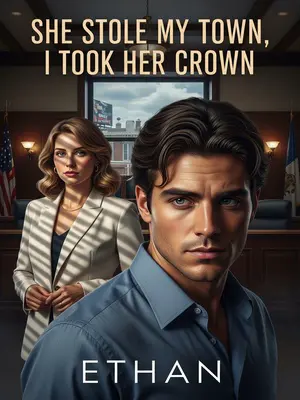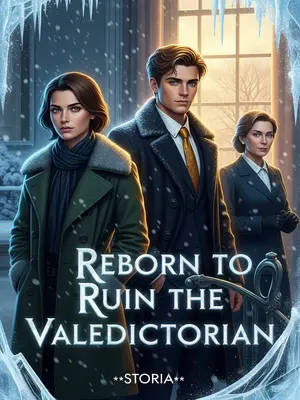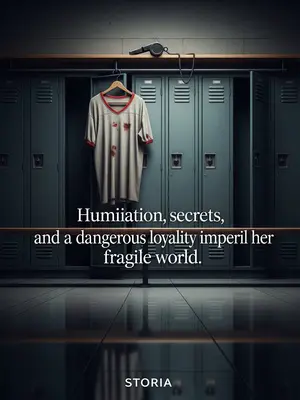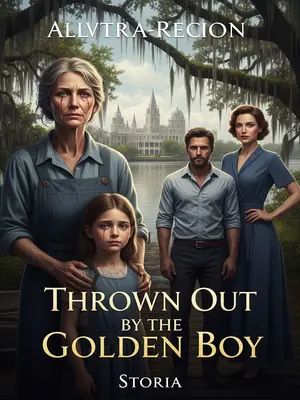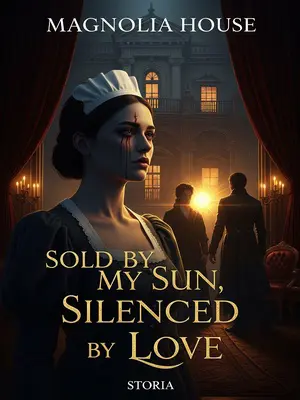Chapter 1: Gone in the Lantern Light
Lantern light flickers over the moss-green pond. Tell me—do mortals really understand love and jealousy? Honestly, I doubt it.
The air in Silver Hollow was thick and sticky that night, crickets chirring like mad and the sharp bite of autumn leaves hanging in the damp. The whole world seemed to crowd in around the pond. Lantern light jittered across the water, painting wild shadows on the mossy bank. You know what? I wondered—not for the first time—if anyone, man or monster, actually understood the twisted knot of love and jealousy. I swear, we just stumble through it, chasing what we want most and tripping over our own hearts.
A bottle of cloudy whiskey dulled my pain, and that’s when I saw—honestly—the line between the world of the supernatural and the world of men was sometimes nothing more than a silver locket.
The whiskey burned a slow trail down my throat, softening the ache in my chest, blurring the hard edges of memory. Everything felt fuzzy. That’s when it hit me—how thin that line really was. The ordinary and the otherworldly? Sometimes all that separated them was just a keepsake—a bit of silver on a chain, that’s all. Maybe it all came down to what you wanted to see, or what you could believe when the world turned strange.
When you’re drunk, you can’t spot a real monster if it bit you. A wooden bat? Against a hundred-year-old grudge? Not a chance.
When you’re three sheets to the wind, you can’t tell a monster from a man. I should’ve known better. But pride and liquor...they make fools of us all. A wooden bat in your hand feels like a joke when you’re staring down a grudge that’s been festering for a century. That’s just the truth.
A brash man sneaks into the werewolf’s den at midnight. Hands trembling, he pulls his silver for the first time.
There’s a kind of courage that only comes from being desperate—so you creep through the dark, heart jackhammering, hands shaking around that scrap of silver, your only shot. Midnight’s when secrets crawl out, and, I guess, when men like me find out just how far they’ll go for love, or revenge, or just to feel alive. I swear, you never know until the chips are down.
At the tail end of the Gilded Age, tucked deep in the misty backwaters of Silver Hollow, lived a man named Hank Maddox—broad-shouldered, tall as a pine, rough around the edges but generous—bold as brass. He loved his drink so much folks called him the Whiskey Wolf, and not always as a joke.
Silver Hollow was the kind of place where everyone knew your story before you opened your mouth, and Hank’s was legend. Folks at the general store would nudge each other and say, “There goes the Whiskey Wolf—don’t let him near your best bottle.” You could hear his laugh all the way down Main Street. That was just Hank. When trouble came, he was the first to lend a hand or a dollar, even if he barely had one to spare.
Hank used to be the pampered son of a wealthy family, but when disaster hit, he fell on hard times and scraped by, tending a few meager acres left by his folks—a barn that leaned like it was tired of standing. Some days, he felt the same.
No matter how hard things got, Hank never lost his taste for whiskey. He often drank himself into a stupor. Passed out wherever he landed.
Some nights you’d find Hank sprawled on the porch swing—boots kicked off, bottle dangling from his fingers. Other times? Curled up in the hayloft, snoring away the aches of another day. Can you blame him? Everyone in Silver Hollow had their own way of getting by.
Hank’s companion was Lila—pretty as a spring morning. She’d been the daughter of a local schoolteacher, but after trouble hit her family, Hank paid off her debts and kept her close.
She showed up with nothing but a battered suitcase and a smile that could melt ice. Suddenly, Hank’s old farmhouse didn’t look so lonely. People whispered he’d saved her from ruin, but what mattered was how she brought warmth back to his life—a little laughter in the kitchen, a vase of wildflowers on the windowsill. Made the place feel like home again.
Lila was gentle, well-read, always looking out for Hank. They weren’t married—at least not by the church—but everyone knew they were tight.
She’d read to him on rainy afternoons. Her voice was soft and steady, thunder rolling outside. Sometimes they’d dance in the kitchen, scratchy phonograph playing, her head on his chest. His worries melted away, if only for a while. They weren’t married, but anyone who saw them together could tell—they were the real deal.
Trouble has a way of finding pretty things, especially in a small town like Silver Hollow.
Hank hated it, but Lila just shrugged and smiled. Trouble has a way of finding pretty things...and it found Lila, sure as sunrise.
On one of those perfect fall afternoons, the town held its annual harvest fair. Every porch was strung with jack-o'-lanterns and bunting; excitement buzzed in the air. You could feel it in your bones.
The air was thick with cider and woodsmoke. Kids ran wild, chasing each other through piles of leaves. Old-timers swapped stories over caramel apples. Nights like this? Even the hardest hearts felt lighter.
Naturally, Hank wouldn’t miss out. He slapped on his old felt hat, whistled a tune. Promised himself he’d win the pumpkin toss this year.
Lila fussed over him, tucking a lucky penny in his pocket. She always did that. “Don’t wait up for me, darlin’—might be home late. You get some rest.” Lila smiled, watching him go, a mix of fondness and worry in her eyes.
She leaned in the doorway, arms folded, watching him disappear down the lane. “Don’t go getting into trouble,” she called after him, but Hank just waved, his laughter echoing back. The sun caught her hair, and for a moment, Hank almost believed nothing bad could ever happen.
Hank didn’t stumble home until deep in the night, long after the last light in town had gone out.
His boots scraped over gravel, moonlight cold and high. He fumbled for his keys, humming a half-remembered tune. His breath fogged in the air.
His eyes were bleary from drink, still humming as he walked in—only to find the house dark—quiet as a grave, no sign of Lila anywhere.
The silence was a punch to the gut. He called her name, voice thick, but only the creak of the floorboards answered. The emptiness pressed in, the familiar clutter of their life suddenly feeling strange and hollow. He was stone-cold sober now.
His heart skipped a beat. He quickly flicked on the lamp and searched every corner, but the house was empty—she was gone. Just...gone.
He tore through the rooms, checked the porch, the pantry, even the woodshed out back. Her coat was gone, but her shoes were still by the door. That wasn’t right.
The booze left him in a heartbeat, replaced by pure panic.
His hands shook as he ran them through his hair. The sharpness of fear sobered him quicker than any cold shower. He tried to remember—had he missed a sign? A note? Nothing.
He knew Lila never went out at night, nor would she leave without a word. The thought that someone might have forced her out made his blood boil.
He grabbed his coat and ran out the door.
He barely remembered to grab his boots, stumbling into them as he shoved open the door. The night air bit at his cheeks, but he didn’t care—he just started running, calling her name, desperate for anything.
But the night was deep and the streets were deserted, except for a stray dog barking somewhere in the dark.
Streetlamps cast long, lonely shadows. The only sounds were the crunch of gravel underfoot. Even the crickets had gone quiet.
Hank searched every inch of Silver Hollow, but Lila was nowhere to be found—he checked the old mill, the bridge by the creek, even the cemetery with wild roses and old secrets.
Heartbroken, he returned home, sat on the front steps, and stared at the empty house. He didn’t care if anyone saw.
The porch boards groaned under his weight as he slumped down, head in his hands. The night was so still he could hear his own ragged breathing. For the first time in years, Hank let himself cry—big, shuddering sobs that echoed into the dark. It felt like the world was falling apart.
